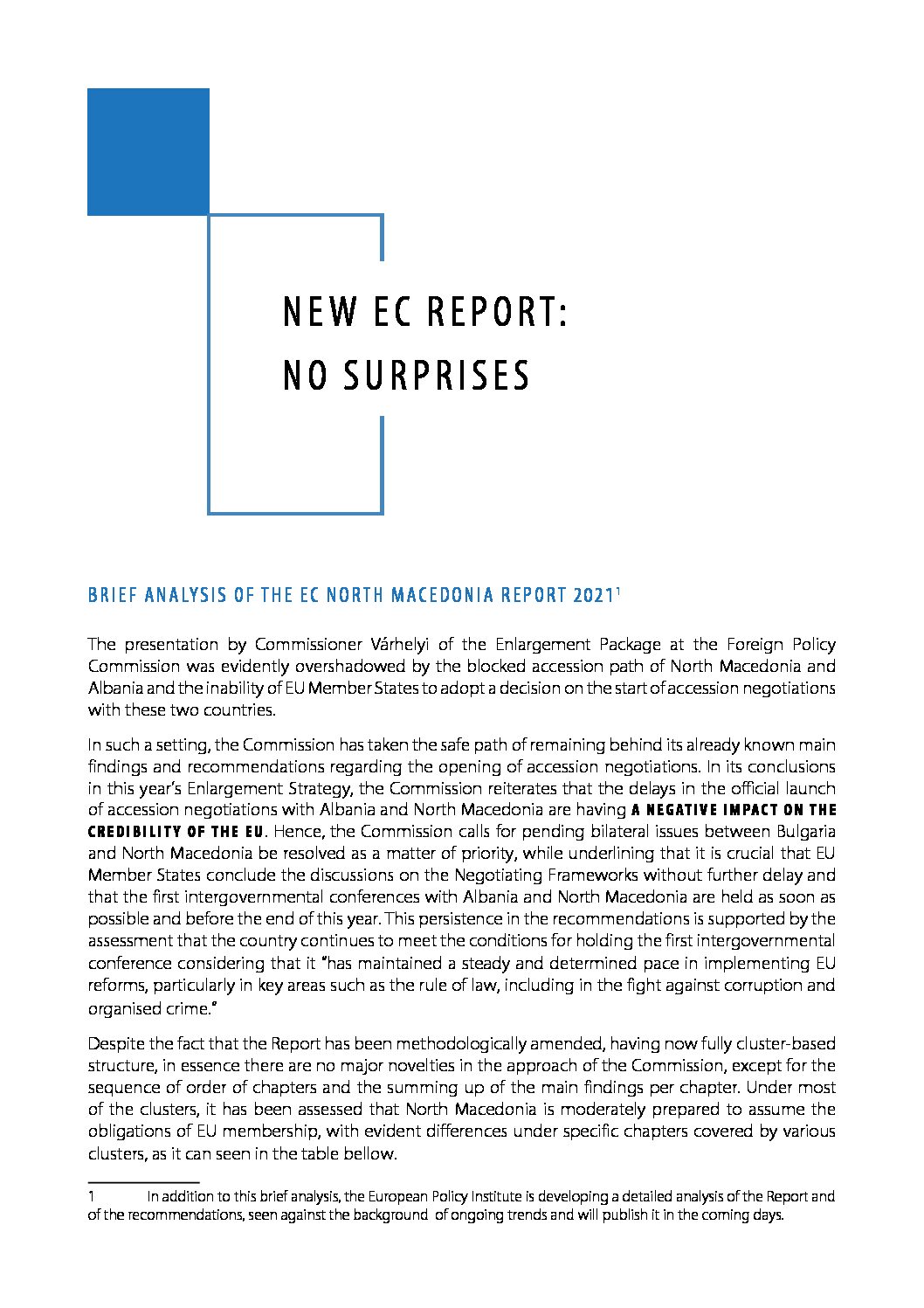The presentation by Commissioner Várhelyi of the Enlargement Package at the Foreign Policy Commission was evidently overshadowed by the blocked accession path of North Macedonia and Albania and the inability of EU Member States to adopt a decision on the start of accession negotiations with these two countries.
In such a setting, the Commission has taken the safe path of remaining behind its already known main findings and recommendations regarding the opening of accession negotiations. In its conclusions in this year’s Enlargement Strategy, the Commission reiterates that the delays in the official launch of accession negotiations with Albania and North Macedonia are having a negative impact on the credibility of the EU. Hence, the Commission calls for pending bilateral issues between Bulgaria and North Macedonia to be resolved as a matter of priority, while underlining that it is crucial that the EU Member States conclude the discussions on the Negotiating Frameworks without further delay and that the first intergovernmental conferences with Albania and North Macedonia are held as soon as possible and before the end of this year. This persistence in the recommendations is supported by the assessment that the country continues to meet the conditions for holding the first intergovernmental conference considering that it “has maintained a steady and determined pace in implementing EU reforms, particularly in key areas such as the rule of law, including in the fight against corruption and organised crime.”
Despite the fact that the Report has been methodologically amended, having now fully cluster-based structure, in essence, there are no major novelties in the approach of the Commission, except for the sequence of order of chapters and the summing up of the main findings per chapter. Under most of the clusters, it has been assessed that North Macedonia is moderately prepared to assume the obligations of EU membership, with evident differences under specific chapters covered by various clusters.
In addition to this brief analysis, the European Policy Institute is developing a detailed analysis of the Report and of the recommendations, seen against the background of ongoing trends and will publish it in the coming days.

